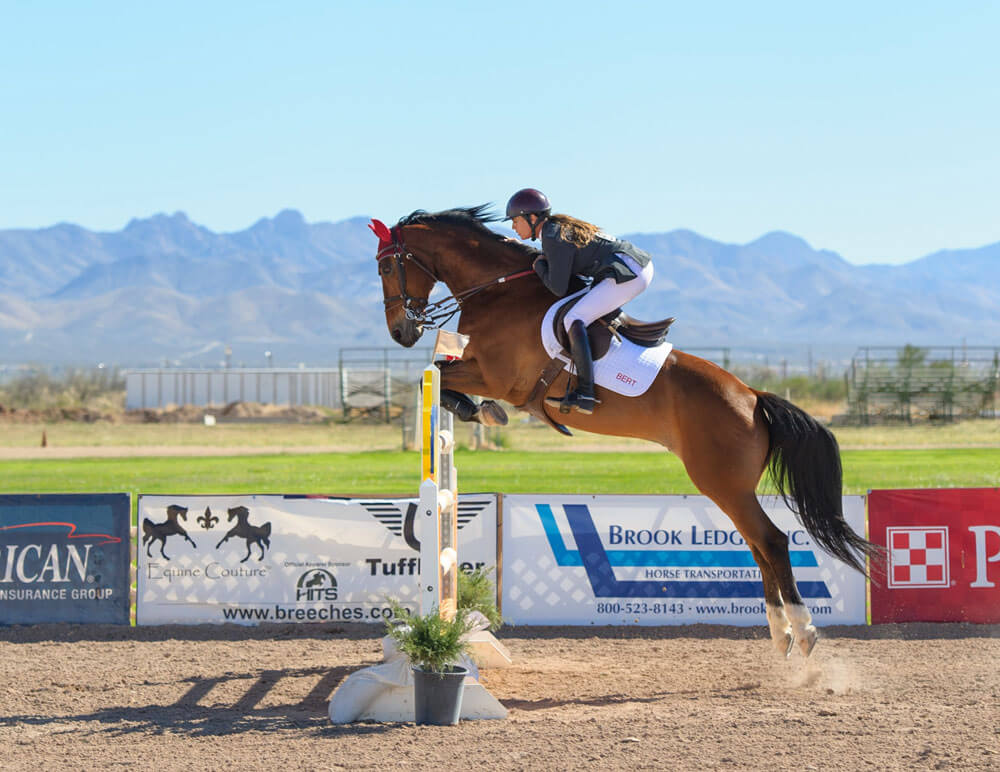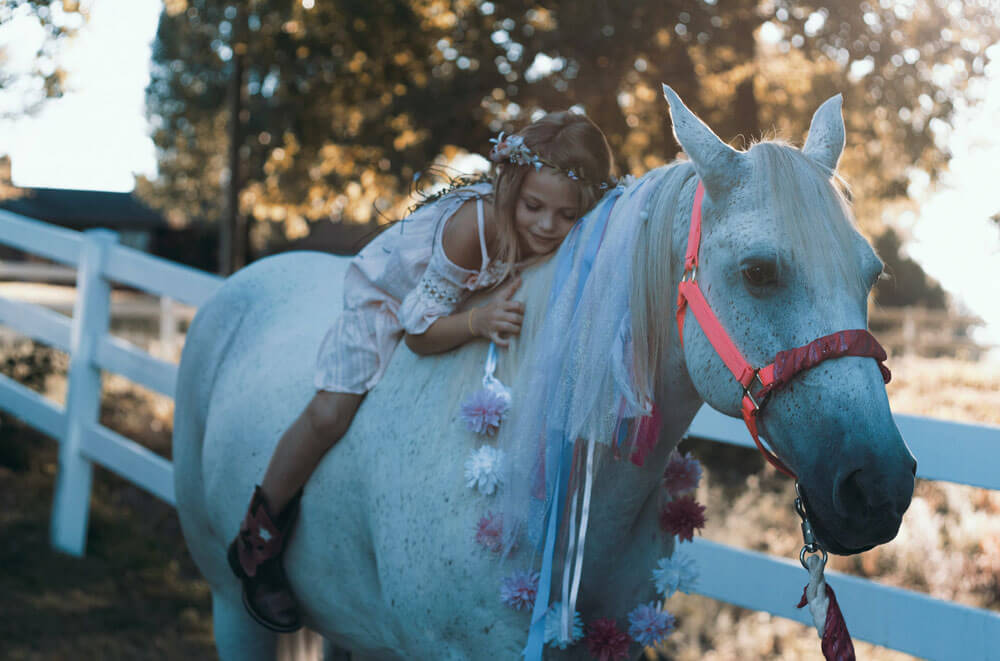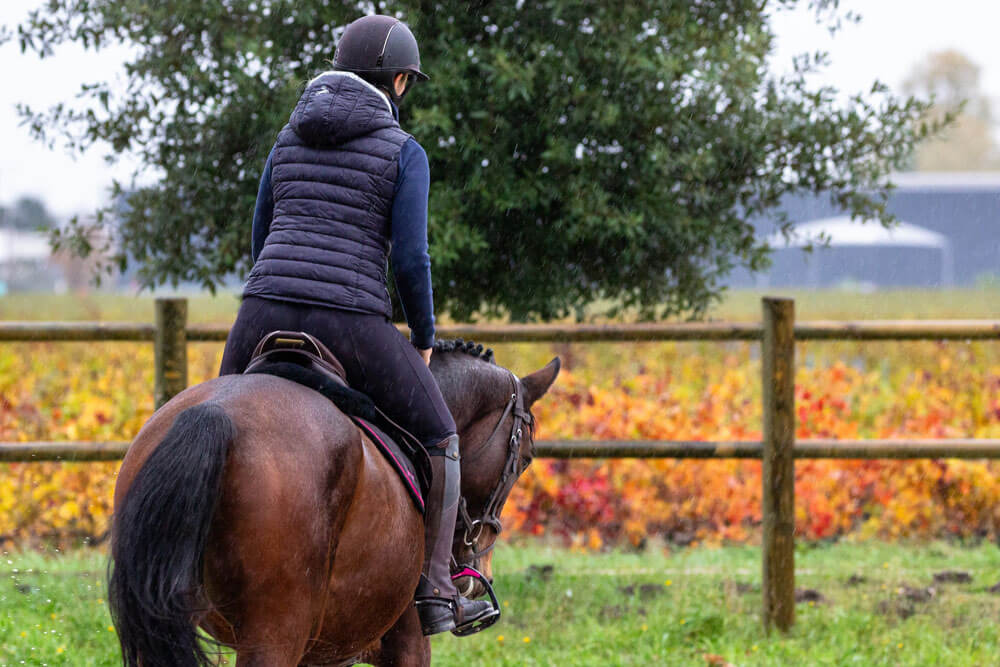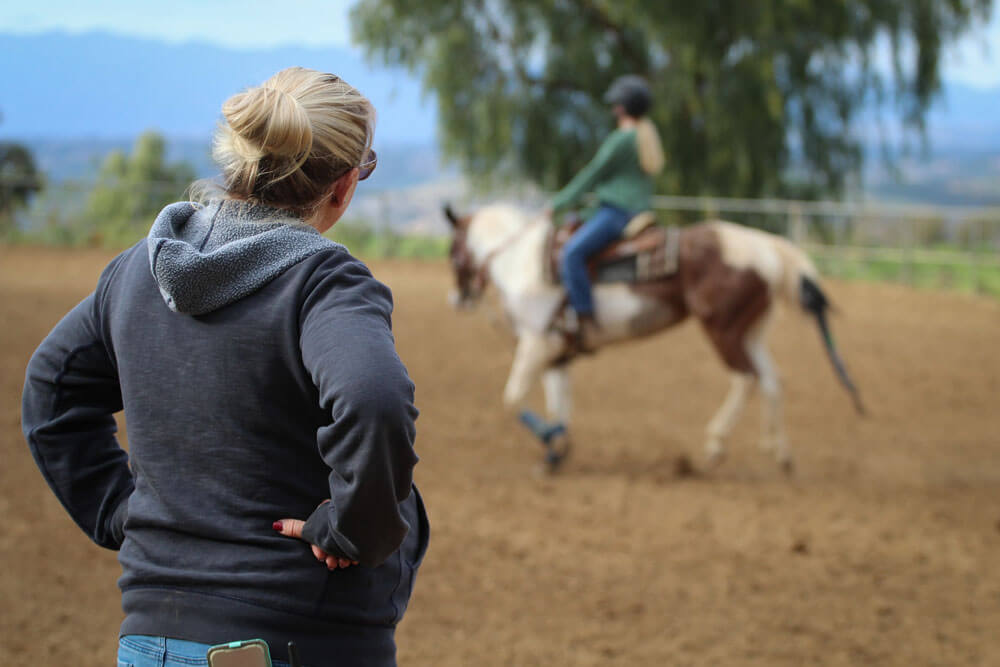Leasing a horse is a win-win solution for an owner and a rider with a horse involved. Owners have a great opportunity to reduce the amount of money spent on taking care of the equine by sharing the cost with a rider. This may help to save up some budget with no harm to the living conditions of the hooved pal.
This article reveals all the nuts and bolts on how to lease a horse seamlessly with crucial aspects explained.

What Is Leasing a Horse?
For those who have just hit the road of horse boarding, the term of leasing a horse can be brand-new. Leasing a horse means that a rider pays a fee to ride an equine for some fixed time agreed in advance. In short, you rent a horse to ride it on and then give it back to the owner.
If you are fond of horse riding but there’s no opportunity to own a hoss, horse leasing is a great way out. Besides, you pay for riding the companion and you don’t need to do the cleaning, grooming, treating a horse, and extra duties that grab lots of time, money, and powers. If you’re a rookie equestrian, as soon as you hone your skills, you may start thinking of horse ownership.
On the other side, horse owners don’t mind leasing their equine as they are paid with money that could cover the ownership. Additionally, if the owner can’t ride a horse anymore, leasing an equine is a great option to keep the hooved friend in shape.

Is Leasing a Horse a Good Idea?
As you can see, leasing a horse has a bunch of benefits that are worth consideration. Let’s point out why this option is so advantageous both for a rider and owner:
- A rider can choose a horse suitable for their riding skills, well-trained, and well-behaved. When they overgrow the hoss, they can choose a more experienced companion.
- A rider can lease a horse at any time they desire it.
- A rider doesn’t need to spend loads of time to cover the full care of the equine.
- If there’s no place for a horse on their property, leasing a horse is a good way to get a companion.
- Leasing a horse can help a rider to decide if they’re prepared enough to own their companion.
- Leasing a horse is quite cheaper than buying one, which is a good option for beginners.
- A horse owner gets money to cover the ownership with no need to cut the budget.
- If a horse owner can’t ride a horse anymore, leasing a horse to a rider is a good opportunity to keep the nag in the saddle.

While leasing an equine is beneficial for many reasons, it has its drawbacks too.
- If there’s only one horse you’re constantly riding, you may end up limiting your skills and slowing down your training. Thus, check for the facility that can offer you a variety of companions to be ridden.
- If you’re planning to buy an equine soon, leasing a horse first is a great option but it requires extra spendings. Instead of saving up to get your own hack, you need to fork out for leasing an equine.
- Depending on the type of horse lease (explained below), you’ll need to allocate a budget for extras such as farrier and vet fees.
- Some horse owners don’t allow to ride their horses out of the property, which might be crucial for the rider.
- If the owner decides to sell the horse, the rider will lose their perfect companion and they’ll have to find another one and get used to it.
Therefore, think wisely whether to lease your horse or not. Get the leasing contract done to rest assured your service is protected.

Lease a Horse Instead of Sell
When some unexpected circumstances arrive and you can’t keep a horse anymore, the big question arises: to sell or not to sell?
As far as you have two options, we’d recommend leasing over selling. And here’s why:
- Selling a horse means you have to give your companion away to a stranger and you’re likely to not see each other anymore.
- There’s no guarantee your loved one will be treated the same way as you did.
- As long as you lease a horse, you can come back to your hooved pal over and over.
- Selling a horse is a one-time payment (a big score though) while leasing allows you to get constantly paid (with small amounts).
- Selling a horse devours a lot of time, effort, and paperwork.
Most horse owners consider their equines as family members, hence, selling a horse is a tough decision to make. If you feel you still have an option to keep your hooved buddy, think over leasing a horse before you turn it over.

Free Lease vs Half Lease vs Full Lease
The common types of horse leasing include a full lease, a half lease, and a free lease. Let’s dip into the nitty-gritty of these terms.
- The full lease agreement implies that the lessee pays a fee to cover all the expenses. That includes feeding, boarding, vet and farrier appointments, etc. In return, the rider is able to visit the horse at any time they want. The horse owner may also ask to pay the lease fee. It’s the fee that is defined as the percentage of the horse’s worth. For instance, if the equine is worth $5,000 and the lease fee is 10%, the lessee needs to pay $500 yearly.
- The half lease agreement implies that the lessee covers only half of the expenses. In return, the rider can visit the equine 50% of the time. There can also be a part lease that works the same way. The lessee pays for some spendings in exchange to ride a horse a few times a week.
- The free lease agreement implies that the lessee isn’t charged for riding a horse. The rider should cover expenses though as they take the responsibility for the animal. Horse owners expect from lessees to cover all essentials to keep the hack fit and happy.

How Much Should I Charge to Lease My Horse?
If you’re ready to share your companion and its expenses, it’s high time to set the price. First, you need to decide which type of leasing you’d prefer to offer (full lease vs half lease). If you have contacts in the same business, you can ask them what their price range is. If there are other facilities nearby, check their offers too.
On average, the full lease costs $400-500 per month where you provide the rider with full access to your hooved pal. Therefore, the half lease costs $200-250 per month where the expenses are split up between the lessor and the lessee.

Horse Lease Agreement
Before handing your horse over to a rider, you have to sign a horse lease agreement. The equine lease agreement may include several forms that contain the following information:
- names of the lessee and lessor;
- a full description of the horse you’re about to lease (name, breed, sex, age, markings, etc);
- the starting and the end dates of leasing;
- the fee payment description: how much the lessee should pay per month with a description of the expenses to cover;
- if the lessee wants to hire an instructor, fill out their full information as well;
- a description of working and riding schedule;
- whether the horse can be ridden outside the property;
- whether anyone else is allowed to ride the horse except the lessee;
- and other relevant information.
The horse lease agreement may vary in different counties, thus, contact the local attorney to get some help. Another important aspect to mention is that don’t underestimate the horse lease contract. This document helps to clear things up between the opposite sides so everybody is aware of their responsibilities.
In the nutshell, get the contract in writing, signed, dated, and witnessed! Download the horse lease agreement pdf to check the sample form.

Conclusion
The article describes all the main aspects of how to lease a horse as well as its pros and cons. Now you’re geared up to decide if it meets your needs and purposes. Depending on the number of expenses you want the lessee to cover, you may choose between full lease, half lease, and free lease options. The fee hinges on the type of horse leasing.
The horse lease agreement is the guarantee your horse will be treated respectfully. Sign the contract in writing to get protected from liability.
